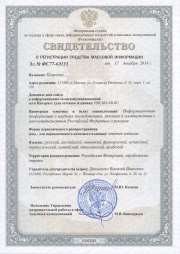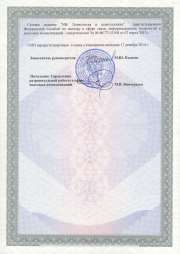|
MAIN PAGE
> Back to contents
Psychologist
Reference:
Savinkov S.N., Mudrova I.O.
The Influence of Leadership Style on the Socio-Psychological Climate in the Production Team
// Psychologist.
2024. № 1.
P. 30-38.
DOI: 10.25136/2409-8701.2024.1.40370 EDN: TWOMKX URL: https://en.nbpublish.com/library_read_article.php?id=40370
The Influence of Leadership Style on the Socio-Psychological Climate in the Production Team
Savinkov Stanislav Nikolaevich
ORCID: 0000-0002-5485-4066
Leading psychologist, EMERCOM of Russia; Associate professor, Department of Psychology, Moscow University for the Humanities and Economics
127055, Russia, Moskvskaya oblast', g. Moscow, ul. Uglovoi Pereulok, 27a, kab. 2-5

|
savinkov-psy@mail.ru
|
|
 |
Other publications by this author
|
|
|
Mudrova Irina Olegovna
Master's Degree, Department of Pedagogy and Psychology, Russian International Academy of Tourism
141420, Russia, Moscow region, Skhodnya, Oktyabrskaya str., 10

|
mc.booms@yandex.ru
|
|
 |
|
DOI: 10.25136/2409-8701.2024.1.40370
EDN: TWOMKX
Received:
05-04-2023
Published:
03-03-2024
Abstract:
The author examines the influence of the leadership style (authoritarian, democratic or liberal) on the management of the labor collective, the author proposed the hypothesis of the study, which consisted in the assumption that the socio-psychological climate in the team directly depends on the leadership style of this team and has its own characteristics inherent in each leadership style separately. In the course of an empirical study based on qualitative and correlation analysis methods, the influence of leadership style on the formation of the socio-psychological climate in the team was studied. In conclusion, the main trends confirming the influence of leadership style on the psychological climate in the team are noted. In the experimental study, 128 subjects, 56 of them men and 72 women, working in three organizations and performing executive functions: an organization in the field of public catering, in the field of beauty and health and in the banking sector aged 20 to 42 years. The study was conducted through the subjects filling out a Google form online. The data obtained showed that the leadership style is influenced by both subjective (personal) and objective factors (a combination of social and economic requirements of production). Therefore, the effectiveness of the management process will largely be determined by the intelligence and general culture of the manager himself, his professional training, character, temperament, as well as the level of formation and well-being of the socio-psychological climate in the team.
Keywords:
leadership style, social psychological climate, research, communication, job satisfaction, authoritarian style, democratic style, liberal style, relationship, characteristic
This article is automatically translated.
You can find original text of the article here.
Currently, the interests of a person and a company are directly dependent on each other. The effectiveness of the entire organization, interaction with consumers, suppliers, and the continuous search for the most rational forms of management depend on the compromise found, which leads to an awareness of the value of human resources and attention to relationships in the team, the formation of a stable and favorable socio-psychological climate. The leadership style of a team is understood in psychological and pedagogical science as a unity of applied management methods and individual manners of behavior and communication inherent in the personality of a particular leader. At the same time, it can be noted that the leadership style is not given to the individual in a ready-made form, but is developed in the process of carrying out professional activities. As a result, the manager is able to independently determine and choose methods that correspond to both professional tasks and goals, as well as the individual characteristics of his personality. Thus, the creative potential of the head is realized, interest and motivation to achieve high and effective results in work increases. The individual leadership style is characterized by stability, as it is closely related to the core of the personality. At the same time, due to the dynamic characteristics of the mental sphere, this stability is largely relative to the conditions in which the personality works. An adequate leadership style corresponds to the conditions of activity, which allows you to maintain adaptability of behavior and take into account emerging changes and even maintain stability in the event of super-intense (stressful) loads [8]. Many managers have repeatedly faced a situation when, acquiring a profitable business, they invested heavily in the company and planned to receive a stable income, but almost all employees decided to quit and left the organization. At the same time, employees are provided with a motivation package and a salary review, however, their decision to leave does not change. For all its paradoxical nature, such situations are observed in practice quite often. Many entrepreneurs note that they have noticed situations when a large company with good commercial profits, good competitiveness, as well as a full package of social guarantees and high salaries for employees, is faced with situations of staff dismissal and their transfer to other organizations. In contrast to the above situation, in other commercial organizations that develop and support their employees, who work in a cohesive and interested team, the staff is staffed, and the company is rapidly developing and competitive. Therefore, it is the favorable socio-psychological climate in the organization that contributes to achieving the above results. Socio-psychological climate (from Greek. klima (klimatos) — inclination) is the qualitative side of interpersonal relations, manifested in the form of a set of psychological conditions that promote or hinder productive joint activities and comprehensive personal development in a group. The problems of the socio-psychological climate and the correlation of management styles of the organization were considered in their works by such scientists as Andreeva G.M., Dontsov A.I., Bodalev A.A., Kolominsky Ya.L., Parygin B.D. and others. G.M. Andreeva defines the socio-psychological climate as "a set of psychological states, moods, and relationships of people in a group and a team" [1]. A.A. Bodalev defines the socio-psychological climate as follows: it is the qualitative side of interpersonal relations, manifested in the form of a set of psychological conditions that promote or hinder productive joint activity and comprehensive development of personality in a group [4]. Y.L. Kolominsky found that there is a positive relationship between the state of the socio-psychological climate of a developed team and the effectiveness of joint activities of its members. Optimal management of activities and socio-psychological climate in any (including labor) team requires special knowledge and skills from management [6]. As special measures, the following are used: scientifically based selection, training and periodic certification of senior personnel; recruitment of primary teams taking into account the factor of professional and psychological compatibility; the use of group methods that contribute to the development of effective mutual understanding and interaction skills among team members [12]. E.E. Netrebko, in his works, identifies climate factors in the team, and also notes that a favorable moral and psychological climate is one of the most important conditions for the effectiveness of production activities [9] A group of researchers led by B.D. Parygin includes a component of social perception in the content of the socio-psychological climate along with emotional components. At the same time, it is noted that the socio-psychological climate "reveals itself, first of all, in the relations of employees to each other, to themselves and to the world as a whole" [11]. As noted by A.V. Barsukova and V.V. Zadvornaya, the socio-psychological climate in the team implies the mood of the team, its moral and moral attitude to work together to achieve common goals [3]. The atmosphere inherent in the team determines both the successful operation of the entire company and the satisfaction with the work of each subordinate, in particular. Speaking about the leadership style, S.V. Ilchenko and I.O. Dozorova mean "a stable manner of behavior of the head in relation to subordinates, allowing them to influence and encourage them to achieve the goals of the organization" [5]. It should be emphasized that the competent and timely application of methods, techniques and optimal forms of interaction with the team allow the head to build the most effective model of behavior with subordinates. In the psychological and pedagogical literature, based on the classification of leadership styles by the German psychologist Kurt Levin, three styles are distinguished: authoritarian, democratic and liberal. However, it should be added that in modern management theory it is customary to consider five leadership styles, namely: democratic, liberal, authoritarian, totalitarian and flexible. The latter two styles are varieties of authoritarian and democratic leadership styles. In this article, we will present comparative characteristics of three classical leadership styles, as well as present the results of an empirical study that allows us to determine the degree of influence of the leadership style on the emerging psychological climate in the team (satisfaction with the work of the team in the organization). The first leadership style – authoritarian – is based on the strong-willed and authoritative interactions of the leader with subordinates, on his sole decision-making on all issues, unquestioning obedience and fulfillment of all orders and requirements. Such a leader himself plans tasks for implementation, constantly monitors their implementation [2].
Unlike the authoritarian leadership style, the second style is liberal – soft and non–intrusive, the labor collective functions practically without any control from the head, relies only on its own abilities, opinion and is constantly looking for ways to solve commercial problems. The third leadership style is democratic, which involves the joint work of the head and subordinates, their constant relationship and private interpersonal relationships. In this team, there is always a creative attitude and a rush of thought, communication is confidential and open, aimed at mutual assistance and mutual support [2]. Next, it is necessary to summarize the results of an empirical study of the influence of leadership style on the psychological climate in the team, on the satisfaction of subordinates with work, conducted in February 2023 in an online format. The purpose of this study was to identify the relationship between the leadership style and the characteristics of the psychological climate in the workforce. The hypothesis of our study was the assumption that the psychological climate in a team directly depends on the leadership style of a given team and has its own specific features inherent in each leadership style individually. In the experimental study, 128 subjects, 56 of them men and 72 women, working in three organizations and performing executive functions: catering organizations (cooks, waiters, dishwashers, cleaners, movers, etc.), in the field of beauty and health (hairdressers, manicure and pedicure masters, spa specialists, massage therapists, etc.) and in the banking sector (cashiers, operators, public relations specialists, accountants, etc.) aged 20 to 42 years. The study was conducted through the subjects filling out a Google form online. The following methods were used in the experimental study: to study the leadership style – the methodology "Determining the leadership style of a labor collective", developed by Zakharov V.P. and Zhuravleva A.L. [7], to determine the socio-psychological climate in the team – the questionnaire "Job satisfaction", developed and adapted by Razonova V.A. [10]. When identifying the relationship between the leadership style and the characteristics of the socio-psychological climate in the workforce, the data obtained and reflected in the Google form were processed using quantitative analysis and correlation methods (Tables 1, 2). Table 1 The results of the correlation analysis | The organization's field of activity | X | Y | X*Y | X? | Y? | Public catering | 47,2 | 0,8 | 37,76 | 2227,84 | 0,64 | | Beauty and health | 41,3 | 0,6 | 24,78 | 1705,69 | 0,36 | | Banking services | 29,9 | 0,9 | 26,91 | 894,01 | 0,81 | | ? | 118,4 | 2,3 | 89,45 | 4827,54 | 1,81 | Let's explain the values of the variables X and Y presented in Table 1: X is the average result according to the Razonova V.A. questionnaire.; Y is the average result according to the method of Zakharov V.P. and Zhuravleva A.L. The calculations presented in Table 1 were performed as follows: | r xy =(mXY–mX*mY)/(? x*? y), where m = arithmetic mean. mXY=89,45/3=29,8; mY=2,3/3=0,77; mX=118,4/3=39,5. ?y=?1,81/3-0,77?=0,11; ?x=?4827,54 /3-39,5?=6,99. rxy = -0,78. | | Table 2 The results of the correlation analysis | Methods | Job Satisfaction Questionnaire | | The test "Determining the leadership style of a team" | r=- 0,78 | Let's explain the final result presented in Table 2. So, if the correlation value is less than 0.30, its relationship is weak; if the value is from 0.30 to 0.70, the relationship is average; if the value is greater than 0.70, the relationship is strong. In other words, according to the results of the study, it can be concluded that the correlation between the results according to the methodology of Zakharov V.P. and Zhuravleva A.L. and the results according to the questionnaire Razonova V.A. is strong, which allows us to state the direct influence of leadership style on employee satisfaction with work. In accordance with the results presented in table 1, three leadership styles and three degrees of job satisfaction were identified (in accordance with the qualitative analysis method): - authoritarian style (indicator Y = 0.8) and dissatisfaction with work (indicator X = 47.2) – typical for the head of an organization in the field of public catering; - liberal style (indicator Y = 0.6) and incomplete job satisfaction (indicator X = 41.3) – typical for the head of an organization in the field of beauty and health;
- democratic style (indicator Y = 0.9) and job satisfaction (indicator X = 29.9) is typical for a manager in the banking services sector. It should be noted that the hypothesis that the socio-psychological climate in a team directly depends on the leadership style of this team and has its own characteristics inherent in each leadership style individually has indeed been confirmed. In addition, the relationships between leadership style and climate characteristics were identified. Let's note the main trends confirming the influence of leadership style on the psychological climate in the team. Thus, the authoritarian leadership style (organization in the field of public catering) is mainly characterized by a low level of trust in the team, which is associated with the centralization of authority by the head, the lack of opportunity for subordinates to express their opinions, put forward ideas and suggestions on improving the effectiveness of the organization. As a result, such relationships and the developing psychological climate in the team cannot be considered optimal and trusting in work and often lead to conflicts both intrapersonal and interpersonal. In turn, the liberal leadership style (organization in the field of beauty and health) is mainly characterized by the efforts of the head to maintain his authority. So, such a manager shows little activity in management, he gives his subordinates more freedom. The interest in the work of the team is low, because the control on the part of the manager is insignificant, subordinates are left to themselves, the psychological situation is often unfavorable, morally difficult, conflicts and quarrels often arise, and the professionalism of the head constantly raises doubts among subordinates. And finally, the democratic leadership style (organization in the field of banking services) is based on trust and mutual understanding between the head and the subordinate. In important matters, the head becomes a member of a single team and, in case of failure, does not shift the blame to a subordinate, but shares responsibility with the entire team. Such a leader often compromises, or refuses to make a decision at all, if he understands that the arguments of a subordinate are more significant and will have a greater effect in the work. The psychological climate in the team is favorable, there is mutual assistance and support. That is why, job satisfaction in such a team, with such a leadership style of the boss, is high. In conclusion, it should be noted that the leadership style is influenced by both subjective (personal) and objective factors (a set of social and economic requirements of production). Therefore, the effectiveness of the management process will largely be determined by the intelligence and general culture of the leader himself, his professional training, character, temperament, as well as the level of formation and well-being of the socio-psychological climate in the team.
References
1. Andreeva, G.M. (2005). Professional tasks of social psychologists in a new situation. Psychological Journal, 5, 9-13.
2. Aksenova, T.V., Snigur, A.R., Nazarov, A.A., Solntseva, A.S., Voronova, A.S. (2021). Leadership styles: optimization of managerial activity. StudNet, 1, 72-77.
3. Barsukova, A.V., Zadvornaya, V.V. (2019). The essence of social-psychological climate in the organization and the basis of its formation. Skif. Questions of student science, 10(38), 310-321.
4. Bodalev, A.A. (2009). Communication as a subject of interdisciplinary study. Psychological Journal, 2, 129-133.
5. Ilchenko, S.V., & Dozorova, I.O. (2019). On the issue of creating a favorable socio-psychological climate of the organization. Bulletin of experimental education, 4(21), 10-18.
6. Kolominsky, Ya.L. (1976). Psychology of relationships in small groups: (Communication and age characteristics). Minsk: BSU.
7. Methodology "Determination of the management style of the labor collective". [Electronic resource]. Retrieved from https://miu.by/kaf_new/mpp/088.pdf
8. Mudrova, I.O., & Savinkov, S.N. (2022). Psychological and pedagogical aspects of effective leadership style of the team. Bulletin of the RMAT, 2, 88-92.
9. Netrebko, E.E. (2015). The influence of individual psychological qualities and leadership style on the moral and psychological climate in the team. Society and Law, 1, 286-290.
10. Questionnaire "Job satisfaction assessment"-[Electronic resource]. Retrieved from https://cyberpedia.su/17xd795.html
11. Parygin, B.D. (1981). Socio-psychological climate of the collective. L.: Nauka.
12. Sosnovsky, B.A., & Lebedeva, E.A. (2021). Psychology of the head: need-semantic aspects: textbook for universities. Moscow: Yurayt.
Peer Review
Peer reviewers' evaluations remain confidential and are not disclosed to the public. Only external reviews, authorized for publication by the article's author(s), are made public. Typically, these final reviews are conducted after the manuscript's revision. Adhering to our double-blind review policy, the reviewer's identity is kept confidential.
The list of publisher reviewers can be found here.
The paper "Research on the influence of leadership style on the socio-psychological climate in the production team" is presented for review. The subject of the study. The subject is not indicated in the work. The paper examines the influence of leadership style on the socio-psychological climate in the production team. The author set and solved the following goal: to identify the relationship between the leadership style and the characteristics of the psychological climate in the workforce. Research methodology. The methodology of the research of the stated topic takes into account the complexity and complexity of the problem raised. The author used a set of techniques that allow us to consider a comprehensively designated object and test the following hypothesis: the psychological climate in a team directly depends on the leadership style of this team and has its own specific features inherent in each leadership style separately. The study was conducted in three organizations that belong to different fields: catering, beauty and health, and banking. The results obtained through a set of techniques were subjected to correlation analysis. The relevance of the study is determined from different angles. On the one hand, the author has reviewed a significant number of studies addressing this problem. On the other hand, there is an insufficient number of practical studies that present the tools for research and style formation by the management of the socio-psychological climate. The scientific novelty of the study is as follows: - comparative characteristics of three classical leadership styles were carried out; - the results of an empirical study are presented, which allows us to determine the degree of influence of the leadership style (management) on the emerging psychological climate in the team (satisfaction with the work of the team in the organization); - the author indicates that the effectiveness of the management process will largely be determined by the intelligence and general culture of the leader himself, his professional training, character, temperament, as well as the level of formation and well-being of the socio-psychological climate in the team. -the work carried out has shown the effectiveness of the assumptions put forward by the author. Style, structure, content. The style of presentation corresponds to publications of this level. The language of the work is scientific. The structure of the work is clearly visible. The introduction provides a description of the relevance and theoretical analysis, within which the main approaches to the issue are highlighted. Special attention is paid to the analysis of leadership styles and comparative analysis. The next section is devoted to the description and analysis of the conducted research. The work is completed with reasoned conclusions. Bibliography. The bibliography of the article includes 12 domestic sources, a small part of which has been published in the last three years. The list contains mainly research articles, but there are also monographs, electronic resources, textbooks for higher education institutions. The design of the sources is ambiguous. Some sources of information are not designed in accordance with the requirements, correction is necessary. Appeal to opponents. The work is very interesting and relevant. An analysis of current research is recommended. It is important to identify the main directions for the formation of a favorable socio-psychological climate, taking into account the results obtained. Conclusions. The problems of the article are of undoubted relevance, theoretical and practical value, and will be of interest to researchers. The work may be recommended for publication.
Link to this article
You can simply select and copy link from below text field.
|
|




